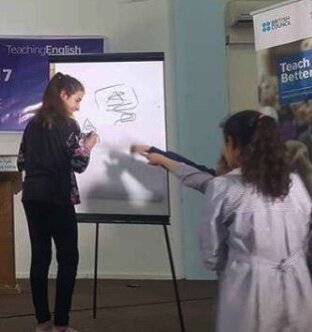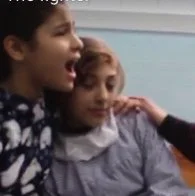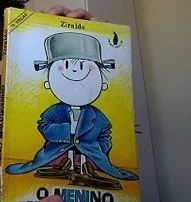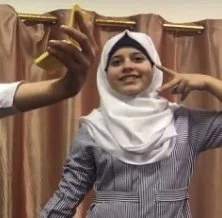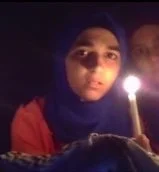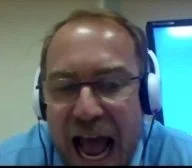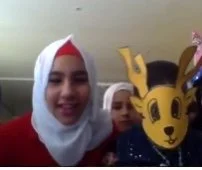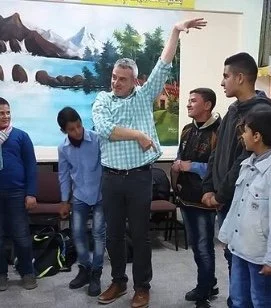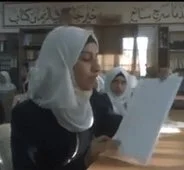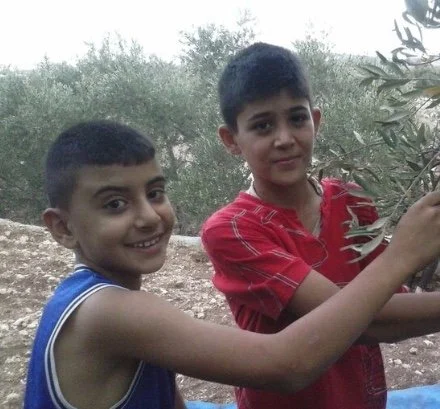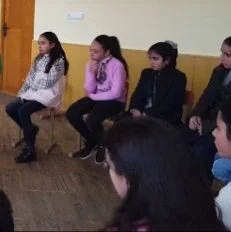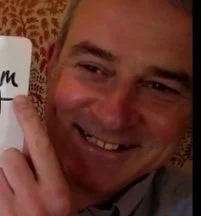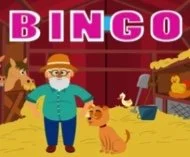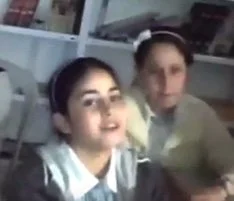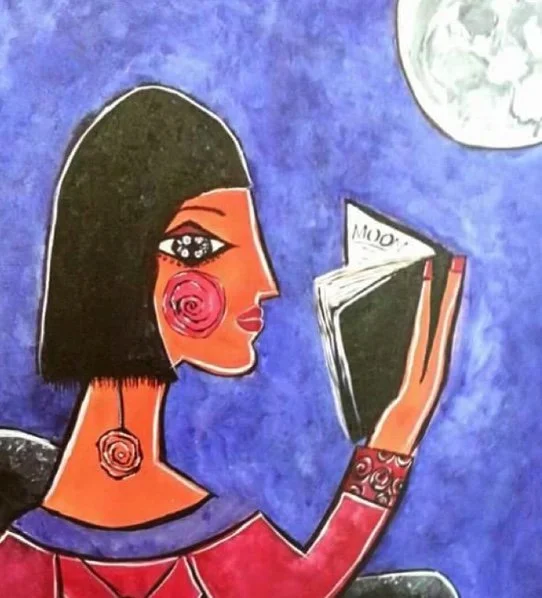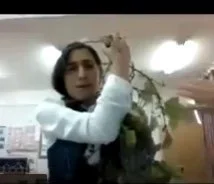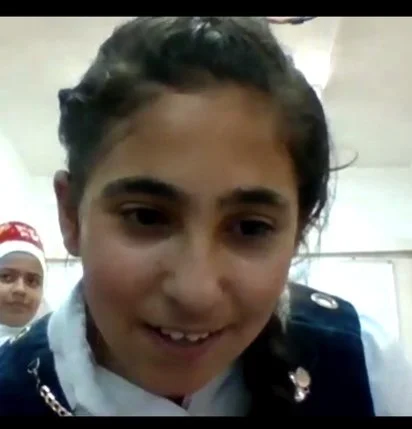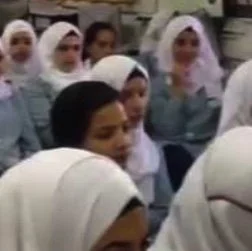In many language classrooms around the world teachers generally ask a lot of questions to students. They do this as a way to generate chat and discussion, as in 'Did you have a nice trip?' or 'What do you think Jbene should do now?', but they also do it to test the knowledge of the students, as in "What's the past of go? ' and 'How do we say سمك in English?'Recently, in my online sessions with groups of kids in Palestine, I've been experimenting with a technique that encourages the learners to ask the questions.
Read MoreWe are excited to inform you that Saturday the 14th April will be the Hands Up Project conference at Westminster University in Central London. As you'll see below there is a fantastic line up of speakers and the climax will be a live performance by the winners of our playmaking competition - 'Inner Thoughts' from Khan Younis, Gaza.
Read MoreThe Hands Up Project isn't really very good at 'teaching' language. After three years of running this project, I've come to the conclusion that with all the power cuts, the often weak internet connection and the lack of physical presence, working online like this is actually quite an ineffective way of teaching anybody anything at all.
Read MoreOrganising a play writing competition is a good way to motivate learners of English, but drama as a tool for learning has more depth, is more holistic, and is much more wide-reaching than an approach which only emphasises the achievements of the few groups that win.In this post I want to focus on the process based drama work of two Gazan UNRWA English teachers, Sahar Salha and Saida Almadhoon who, each in their own way, have incorporated drama into their English curriculums by turning the playmaking competition into a drama project.
Read MoreThere is something very beautiful that's been going on between Brazil and Palestine.It all started last summer when I was sponsored by Cambridge University Press to go to Brazil to do a series of talks all over the country. I was talking about the use of images in language learning and, since images are such an integral part in the way we work, I mentioned the Hands Up Project a lot. The talks went down well but the Hands Up Project went down even better!
Read MoreWe are very pleased to announce the results of the Hands Up Project Playwriting and play performing competition for Palestinian children.Though I have had the enormous pleasure of watching and reading all 88 plays that were submitted, I was not involved in the process of picking the winners at all.
Read More‘The difference between theatre and classroom drama is that in theatre everything is contrived so that the audience gets the kicks. In the classroom, the participants get the kicks.’ So wrote the acclaimed drama in education specialist, Dorothy Heathcote in Drama as a learning medium; Wagner (1999). But we shouldn't just take Dorothy's word for this.
Read MoreThis week we have a guest post from an old friend of mine who I used to work with in Birmingham about 20 years ago. Jon Turner now lives in UAE and has been volunteering once a week with children in Palestine. I really like his take on the traditional 2 truths and a lie activity and have since tried it out myself very successfully with my own groups in Gaza and Zaatari. Over to you Jon!
Read MoreI've written many posts on this blog about the value of drama in second language development and particularly about how helping learners to create their own plays can be a rich learning experience. Here I'd like to look at a specific example of how a play was developed over a number of weeks out of one simple writing exercise with a group of Syrian children in Zaatari refugee camp, Jordan.
Read MoreI've just been on another visit to Gaza, this time to Beit Hanoun and Rafah areas, where I ran a series of drama workshops with children. I've come back invigorated and brimming with ideas, and this is down, in no small part to the incredible energy, the creativity, and the life giving force that so many people have there.
Read MoreThis week we have a post from long term HUP volunteer, Madeeha Manzur. Madeeha is a teacher in a primary school in Rawalpindi, Pakistan and every week she connects to a class of children in a school in Nablus, Palestine. But unlike most of our volunteers who tell stories or teach English by interacting themselves with the children in Palestine, Madeeha does it slightly differently by enabling the children she works with in Pakistan to do so. I think she's doing a wonderful job and you can see by the faces of the children in the pictures that they are all getting a lot out of the experience. Over to you Madeeha...
Read MoreStephen Krashen's big idea in 'The power of reading' (1993) was that reading for pleasure, or free voluntary reading (FVR) as he referred to it , was in many cases more conducive to language development than direct teaching alone. He cites lots of research to back up his view. I read the book in the late nineties when I was teaching English to very diverse multilingual groups of adults at the Brasshouse Centre in Birmingham, and it had a huge influence on the way that I conducted by classes.
Read MoreThis week we have a guest post by Armenian English teacher and teacher trainer, Ani Aloyan. I met Ani in Armenia about 2 months ago when I was running a storytelling course for teachers, organised by British Council Armenia. In this post Ani discusses some great techniques for demonstrating and checking meaning when storytelling. She's just about to deliver her own storytelling course for teachers in a different region of Armenia now. Thanks for the post Ani and thanks too for sharing the Palestinian story of Jbene with teachers and children in Armenia.
Read MoreBrowsing through a friends bookshelves the other day, I came across a book which until then, I'd somehow pretty much forgotten about. 'Lessons from the Learner' by Sheelagh Dellar (Longman 1990) is a real classic, and had a huge influence on what I did and, more importantly, what the learners did in my classes when I first starting teaching.
Read MoreThis week a post from Julietta Schoenmann who has recently started volunteering with us with a group of Syrian children in Za'atari refugee camp, Jordan. Jules is the joint coordinator of the IATEFL Global issues Special interest group and has just returned from a week training teachers of refugees in Greece. Over to you Jules...Ding!
Read MoreThis week we have another guest post from ELT author, teacher trainer and long- term Hands Up Project volunteer, Paul Dummet. Over to you Paul....
Read MoreI was disappointed not to be able to go to the Palestine Expo which took place at the Queen Elizabeth centre in the heart of London, this weekend. This was a huge event, expected to be attended by up to 10.000 people, celebrating Palestinian culture including music, cookery, storytelling and other spoken word events. I'd planned to go but at the last minute something came up and I couldn't make it. I hope it was a huge success.
Read MoreIn previous posts on this blog, I've written about the importance of activities which combine controlled and freer language use; the kind of thing where learners get repeated, controlled practice of areas of language, but also where they have opportunities to use language to share their opinions and personalities with the people around them - what we might call genuine communication.
Read MoreA few weeks ago, I announced that the Hands Up Project will be running a play writing competition for young learners in Palestine.
Read MoreThis week we have a guest post by one of the latest teachers to join our ever expanding pool of volunteers around the world, Emi Slater. What Emi writes fits in very well with the current trend in the work of the Hands Up Project to focus more on children creating stories, rather than merely consuming them. Over to you Emi...
Read More
